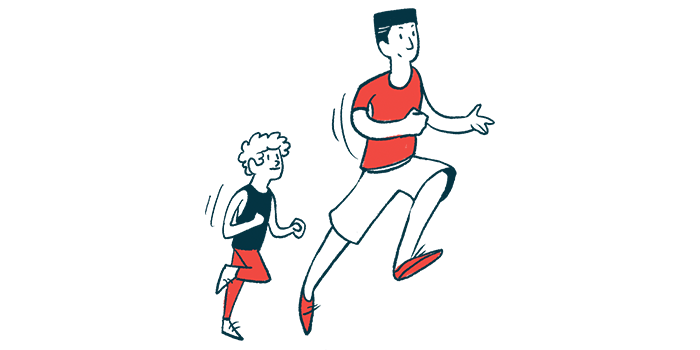Study Advocates Physical Activity as Routine Care
Researchers cite factors that either promote or hinder physical activity
Written by |

Efforts to promote physical activity in people with cystic fibrosis (CF) should be holistically integrated into routine care, rather than delivered as separate interventions.
“The key message resulting from the current research is that the promotion of [physical activity] in this population would be most effective as part of routine CF care rather than as a bespoke intervention,” researchers wrote.
That’s according to the study, “Developing an ecological approach to physical activity promotion in adults with Cystic fibrosis,” was published in the journal PLOS One.
Because physical activity can confer a number of health benefits, prompting patients to engage in more activity is recommended as a part of routine care for CF. Despite these recommendations, there is little research on strategies that can effectively promote physical activity in CF patients, who commonly face barriers to being physically active.
In an effort to learn more about the factors that influence physical activity in CF, researchers in the U.K. first conducted semi-structured interviews with 11 people with CF (average age 33.2 years, six males). Nine of the patients, along with their family members, then participated in focus group discussions. An additional focus group of three CF-focused clinicians also was included in the study.
From these interviews and discussions, the researchers highlighted a number of factors that either promote physical activity in CF patients, or act as a barrier to engaging in activity. For example, many patients reported that finding enjoyable ways to be physically active could be motivating, while being active for its own sake could feel like a chore.
“I think everyone hates the gym… Just running on a treadmill, it’s just boring. Do something like fun like a class or something, that makes you forget you’re working out,” one patient said in an interview.
Receiving support from peers and family members, and finding social ways to get active, also were noted as motivating factors.
“They [friends] make me want to go [to the gym] more, if I’m participating with someone, rather than just by myself,” one patient said.
“It’s [group-based resistance training] a social thing as well for me, exercise, so I would have felt like I was missing out on that if I didn’t go [to a session],” said another.
Physical, emotional barriers
Many patients noted that the physical experience of living with CF could serve as a barrier to engaging in activities. Emotional challenges also were noted as common barriers.
“If I’m having a bad day, like chest-wise, and I’ve got like a tight chest, and I just can’t loosen it up or it’s too loose and I’m feeling wheezy, I don’t want to exercise, so I will stay in bed,” one said.
In terms of promoting physical activity in CF, participants agreed that clinical CF care should include a focus on being physically active. Many participants voiced a desire for closer inclusion in CF care of physical therapists or other healthcare professionals specifically focused on physical activity who are knowledgeable about the disease.
“I think it [promoting physical activity] has to stem from the consultant or doctor, that firstly they see physiotherapy and physical activity as high up as medicine,” said a patient.
“From day one … you’ve got to have a team of physiotherapists, physiologists that fully understand,” said another.
Become active early
The importance of starting habits of activity early — particularly before the rebellious teenage years — was stressed.
“When they’re active as children and have got active families, when they drop off as a teenager, because all teenagers are naughty, they’re easier to regain it later on, but if they’ve never been active and they don’t have an active family, it’s never been something they do, it’s very hard for them to start with [reduced lung function] as mid-twenties,” one clinician said.
A number of different intervention styles were discussed — some participants thought it would make sense to find ways to do regular physical activity at home or through online resources, while others favored doing it in a clinical or public setting.
Regardless of the intervention type, a consistent theme was that participants favored physical activity being regularly integrated into routine CF care, rather than delivered as an assigned intervention.
“I think it’d be better if it [physical activity] was a bigger topic in clinic in general, so yes, I would move away from this intervention whatever, more to just make it a more rigorous part of the treatment regime in the first place,” a patient said.







